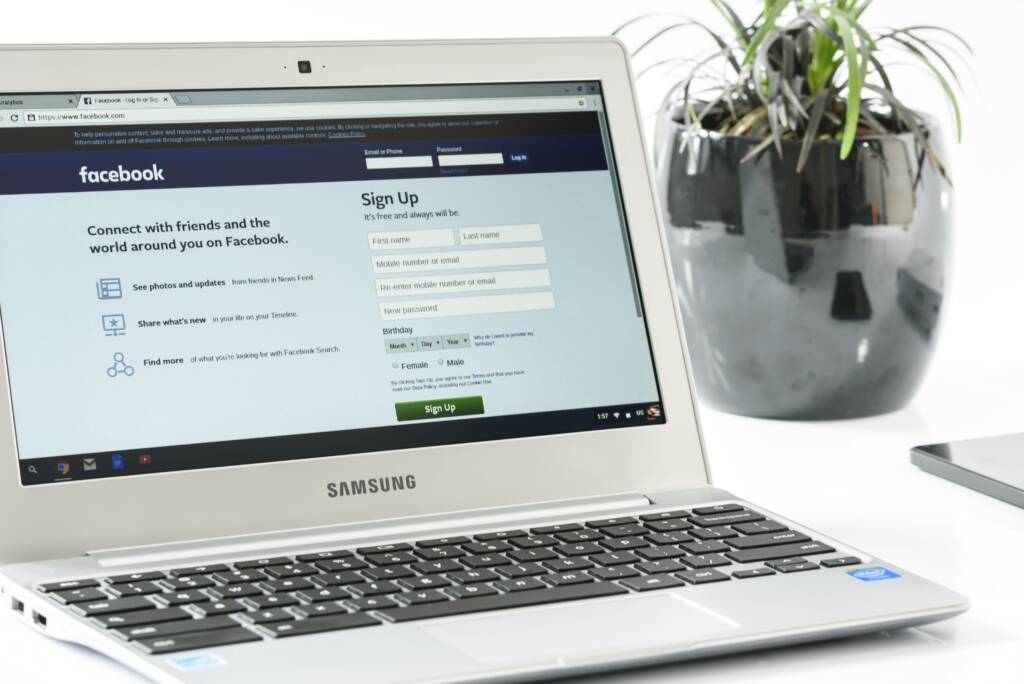Today, we’re delving into the topic of how to target Ecommerce store owners on Facebook. No need for complex strategies here—just practical insights tailored for your business growth. Are you ready to take your advertising game up a notch and reach ecommerce store owners on the world’s largest social media platform? Cue in Facebook.
With over 1.8 billion online shoppers actively browsing through Facebook each month, targeting ecommerce owners on this platform has never been more promising. Let’s explore straightforward and impactful techniques to enhance your Facebook marketing game for eCommerce.
From harnessing the power of custom audiences and lookalike targeting to creating compelling ad creatives tailored specifically for ecommerce entrepreneurs, we’ll guide you through the process step by step. Whether you’re a seasoned marketer or just dipping your toes into the world of Facebook advertising, understanding the nuances of targeting ecommerce store owners is crucial for driving impactful results.
If you’re ready to refine your approach and connect with your target audience, you’re in the right place. Let’s get started on optimizing your online store’s presence on Facebook.

Why target Ecommerce store owners on Facebook?
Why set your sights on eCommerce store owners when it comes to Facebook marketing? Well, the answer lies in the unparalleled opportunities that await. Picture this: a vast network of potential collaborators, customers, and influencers, all congregating on the world’s most popular social platform.
Rich Pool of Potential Customers:
eCommerce store owners are not just entrepreneurs; they’re consumers too. Targeting them on Facebook allows you to tap into a pool of individuals who are not only decision-makers in their businesses but are also actively engaged in online transactions.
Strategic Alliances:
Establishing connections with eCommerce store owners opens the door to potential collaborations and partnerships. Whether it’s cross-promotions, joint ventures, or affiliate marketing, Facebook provides a space where these alliances can flourish.
Insights into Industry Trends:
Engaging with eCommerce professionals on Facebook offers valuable insights into industry trends. Stay abreast of the latest developments, challenges, and innovations by being part of conversations within this community.
Effective B2B Marketing:
If your products or services cater to the needs of eCommerce businesses, Facebook becomes a powerful B2B marketing tool. Tailor your content to address the specific pain points and aspirations of eCommerce entrepreneurs, creating a resonance that drives engagement.
Targeted Advertising:
Facebook’s powerful ad system helps you reach exactly the people you want to connect with. By honing in on eCommerce store owners, you ensure that your ads reach individuals who are not just potential consumers but also influencers in the online retail space.
In essence, targeting eCommerce store owners on Facebook is more than a marketing strategy; it’s a gateway to a dynamic and influential community. By doing so, you position yourself strategically within a network that can propel your business to new heights.
How to target Ecommerce store owners on facebook By Identifying the target audience:
Identifying the right target audience is a crucial step for the success of any eCommerce store. Here’s a straightforward guide on how to pinpoint and understand your ideal customer base:
Market Research:
Begin with comprehensive market research to understand the broader industry. Identify trends, competitors, and gaps in the market that your eCommerce store can fill.
Define Your Niche:
Clearly define the niche or specific product categories your store will focus on. Understanding your niche narrows down your target audience and allows for more tailored marketing efforts.
Create Buyer Personas:
Develop detailed buyer personas representing your ideal customers. Consider demographics, interests, online behavior, and pain points. This humanizes your target audience and guides your marketing strategy.
Analyze Competitor Audiences:
Study the audiences of successful competitors. Identify who engages with their content, purchases their products, and why. This can give you useful info about the people who might be interested in what you offer.
Utilize Google Analytics:
If you already have an online presence, use Google Analytics to analyze the demographics and behavior of your website visitors. This data can help refine your target audience definition.
Social Media Insights:
Explore the analytics tools provided by social media platforms. Platforms like Facebook, Instagram, and Twitter offer insights into the demographics and interests of your current audience.
Feedback and Surveys:
Collect feedback from existing customers through surveys. Ask about their preferences, challenges, and what led them to choose your eCommerce store. Take advantage of this data to fine-tune and improve your ideal audience profile.
Monitor Industry Trends:
Stay abreast of evolving industry trends. The preferences of your target audience may shift, and staying informed ensures your eCommerce store remains aligned with their needs.
Keep in mind that figuring out your ideal audience is something you continually work on. As your business evolves and the market changes, regularly revisit and adjust your understanding of your ideal customers to ensure your eCommerce store stays relevant and resonates with the right audience.
How to Target Ecommerce Store Owners on Facebook By Utilizing Facebook Insights
Let’s simplify the process of targeting eCommerce store owners on Facebook by using Facebook Insights:
- Open Your Facebook Page:
- Hop onto your Facebook account and head over to your business page.
- Click on “Insights”:
- Look for the “Insights” tab at the top of your page and click on it.
- Find “Audience” Section:
- Within Insights, find the “Audience” section. This is where you get to know who is interested in your page.
- Explore “Demographics”:
- Click on “Demographics” to understand the age, gender, and location of your audience. This helps you target the right people.
- Check “Page Views” and “Actions”:
- Look at “Page Views” and “Actions on Page” to see which parts of your page are getting attention. This guides you on what your audience is interested in.
- Navigate to “Posts” Section:
- Go to the “Posts” section to know when your audience is most active. This is crucial for posting content at the right times.
- Analyze “Engagement”:
- Examine the “Engagement” data. Take note of how your audience is interacting with your content. Pay special attention to likes, shares, and comments – these are valuable cues.
- Identify Top Performing Posts:
- Find the “Top Performing Posts” section to see which posts are resonating the most. Replicate this success in future content.
- Tailor Content Based on Insights:
- Use the demographic and engagement insights to tailor your content specifically for eCommerce store owners. Craft posts that address their needs and interests.
- Adjust Strategies Over Time:
- Regularly revisit Facebook Insights. Track changes in your audience and adjust your strategies accordingly. This ensures ongoing relevance.
By utilizing Facebook Insights, you’re not just analyzing data – you’re gaining insights that empower you to target eCommerce store owners effectively. It’s a dynamic tool that lets you refine your approach and keep your content tailored to your audience’s preferences.

Creating compelling ad content for Ecommerce store owners
Let’s break down how to craft compelling ad content for targeting eCommerce store owners on Facebook:
Understand Their Pain Points:
Identify the challenges and needs specific to eCommerce store owners. Tailor your ad content to address these pain points, showing that you understand their business concerns.
Highlight Solutions:
Clearly showcase how your product or service provides solutions to the common problems faced by eCommerce entrepreneurs. Focus on the benefits that directly impact their business.
Use Relevant Imagery:
Incorporate visuals that resonate with the eCommerce environment. Showcase your product/service in action within an online store setting to make it relatable.
Clear Call-to-Action (CTA):
Craft a straightforward and compelling CTA that prompts immediate action. Whether it’s to “Shop Now,” “Learn More,” or “Sign Up,” make sure it aligns with the goal of your ad.
Emphasize Time-Sensitive Offers:
Create a sense of urgency by weaving in time-limited offers or exclusive deals to entice your audience. eCommerce store owners are often keen on optimizing costs, and a time-sensitive offer can prompt quicker decisions.
Highlight Success Stories:
Share success stories or testimonials from eCommerce entrepreneurs who have benefited from your product or service. This builds credibility and establishes trust with your target audience.
Educational Content:
Provide valuable content that educates eCommerce store owners. This could be in the form of tips, guides, or industry insights. Position yourself as a source of knowledge to enhance your credibility.
Mobile-Optimized Design:
Ensure that your ad content is visually appealing on mobile devices. Many Facebook users access the platform on their phones, and a mobile-friendly design ensures broader reach.
A/B Testing:
Experiment with different ad elements using A/B testing. Test variations of headlines, visuals, and copy to see what resonates best with your target audience.
Engage with Questions:
Pose questions in your ad copy that engage eCommerce store owners. Encourage them to reflect on their needs, making your product/service feel like a solution to their challenges.
Crafting compelling ad content for eCommerce store owners on Facebook is about speaking their language, addressing their concerns, and presenting your offering as an essential asset for their business. Keep it clear, relatable, and action-oriented.
How to Target Ecommerce store owners on Facebook: Utilizing Facebook’s ad targeting tools
Let’s simplify how to use Facebook’s ad targeting tools to effectively reach eCommerce store owners:
- Get into Facebook Ads Manager:
- Log in to your Facebook Ads Manager. If you don’t have an account, you can create one.
- Pick Your Ad Goal:
- Choose what you want your ad to do, like getting more people to visit your website or make a purchase.
- Decide Where Your Ad Should Appear:
- Choose the locations where you want your ad to be seen. This helps if you’re targeting a specific area or country.
- Use Detailed Targeting:
- Click on “Detailed Targeting” to find people interested in eCommerce. Type in words related to online shopping.
- Add Behaviors and Interests:
- Check out “Behaviors” and “Interests” to narrow down your audience. Pick things that show a strong connection to eCommerce.
- Reach Your Own Customers:
- If you already have customers, upload a list. Facebook will find similar people, so your ad reaches potential eCommerce store owners.
- Find Similar Audiences:
- Create a “Lookalike Audience” to expand your reach. Facebook will show your ad to people with traits similar to your existing customers.
- Adjust Age and Gender:
- Set the age and gender you want to target. Think about who’s most likely to be interested in your eCommerce products.
- Connect or Disconnect:
- Choose whether you want your ad to reach people connected to your page or exclude them. This helps you find new customers or engage with existing ones.
- Set Your Budget:
- Decide how much money you want to spend and when you want your ads to show up.
By utilizing Facebook’s ad targeting tools, you can precisely reach eCommerce store owners. These tools allow you to define your audience based on interests, behaviors, and demographics, ensuring your ads are seen by the right people at the right time.
Strategies to target Ecommerce store owners on Facebook
Let’s simplify some effective strategies to target eCommerce store owners on Facebook:
Leverage Facebook Groups:
Join and engage in relevant Facebook Groups where eCommerce store owners gather. Participate in discussions, offer insights, and subtly introduce your business.
Utilize Facebook Ads:
Create targeted Facebook ads specifically tailored for eCommerce entrepreneurs. Use precise targeting options to reach individuals interested in online retail and business.
Educational Content:
Develop content that educates eCommerce store owners. Share tips, industry insights, and best practices. Establish yourself as a valuable resource within the community.
Host Webinars or Live Sessions:
Conduct live sessions or webinars addressing common challenges faced by eCommerce businesses. This interactive approach can foster engagement and position you as an industry expert.
Collaborate with Influencers:
Partner with influencers in the eCommerce space. Their endorsement can introduce your brand to a wider audience of potential eCommerce store owners.
Run Contests and Giveaways:
Organize contests or giveaways specifically designed for eCommerce enthusiasts. This not only boosts engagement but also attracts attention within the target community.
Create a Dedicated Business Page:
Establish a dedicated Facebook Business Page for your eCommerce brand. Share regular updates, product launches, and customer testimonials to build credibility.
Engage with Trending Topics:
Stay updated on trending topics within the eCommerce industry. Engage with relevant discussions, and align your content with current trends to stay in the spotlight.
Use Retargeting:
Implement Facebook Pixel to retarget website visitors. Remind eCommerce store owners about your products or services they showed interest in but didn’t purchase.
Provide Exclusive Offers:
Offer exclusive deals or discounts for Facebook followers who are eCommerce store owners. This creates an incentive for them to engage with your page and consider your products or services.
Share Success Stories:
Showcase success stories of eCommerce businesses that have benefited from your offerings. This builds trust and demonstrates the practical value of your products or services.
Encourage User-Generated Content:
Encourage your audience to share their eCommerce success stories or experiences with your products. User-generated content adds authenticity and resonates with like-minded individuals.
Remember, the key is to authentically engage with the eCommerce community on Facebook. By providing value, building relationships, and addressing their specific needs, you can effectively target and connect with eCommerce store owners on the platform.

Leveraging Facebook groups and communities for outreach
Let’s simplify strategies for leveraging Facebook groups and communities to reach eCommerce store owners:
Identify Relevant Groups:
Begin by identifying and joining Facebook groups specifically tailored for eCommerce store owners. Transitioning to active participation is crucial for effective outreach.
Engage Proactively:
Actively engage in group discussions by offering insights, answering questions, and contributing meaningfully. Simultaneously, aim to seamlessly integrate your participation with discussions about your eCommerce business.
Provide Value Through Content:
Share valuable content, such as informative articles and industry tips, that directly addresses the challenges faced by eCommerce store owners. This approach aids in smoothly introducing your business when appropriate.
Facilitate Q&A Sessions:
Organize Q&A sessions within the group to position yourself as an expert. This provides an organic opportunity to subtly introduce your eCommerce business and its relevance to the community.
Cultivate Relationships with Admins:
Foster relationships with group administrators. Collaborate on events or initiatives, creating a bridge to showcase your expertise and connect with the eCommerce community more effectively.
Extend Group-Exclusive Offers:
Extend exclusive discounts or offers solely for group members. This not only encourages engagement but also introduces a sense of exclusivity, seamlessly integrating your business into the community.
Showcase Success Stories:
Share success stories of eCommerce store owners who have benefited from your offerings. This serves as compelling social proof and facilitates a smoother integration of your business into group discussions.
By leveraging Facebook groups and communities in these ways, you can effectively outreach to eCommerce store owners. The key is to be genuine, add value to discussions, and build relationships within the community over time.
Conclusion: How to target Ecommerce store owners on Facebook
In summary, targeting eCommerce store owners on Facebook is like crafting a strategic puzzle with different pieces working together. Let’s recap the simple steps:
Firstly, when using Facebook Ads Manager, get specific. Dive into details like interests, behaviors, and demographics. This ensures your ads land right in front of eCommerce store owners who are likely to be interested.
Once you’ve got your target, create ads that speak their language. Use clear language, attractive visuals, and formats like carousels and videos to make your message stand out.
Now, don’t just be a spectator—jump into relevant Facebook groups. Engage actively, share useful insights, and gradually introduce your eCommerce business into the conversations.
Create a sense of urgency with limited-time offers. This taps into the savvy budget mindset of eCommerce store owners, encouraging them to act sooner.
Lastly, don’t just aim for sales—aim for relationships. Build connections in the eCommerce community. Genuine relationships are like seeds that grow into long-term success.
So, in your journey to target eCommerce store owners on Facebook, think of it as a blend of precision, creativity, and building meaningful connections. It’s not just about ads; it’s about understanding, engaging, and growing together.



